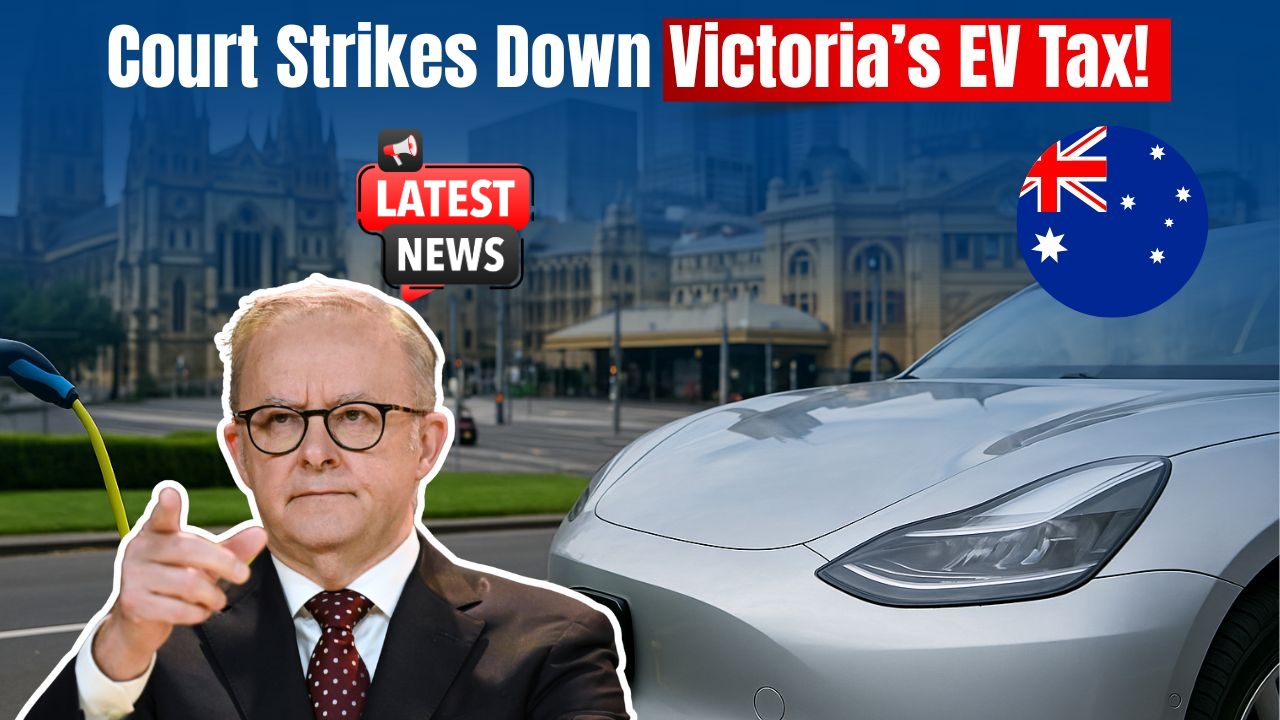In a historical ruling, the High Court of Australia has banned the electric vehicle (EV) road-user charge in Victoria and provided a major win to the owners of EVs and the turning point in the national transport policy. This decision overturns the state 2.8 cents-per-kilometre tax on electric vehicles and hybrid cars, which was enacted in 2021, on the basis that the taxation of automobiles is exclusively in the federal government. It is anticipated that the ruling will transform EV taxation in all of Australia and open the way to a common federal taxation of sustainable transport.
Victoria Controversial EV Tax
Victoria was the first state to introduce the road-user charge on the zero and low emission vehicles (ZLEVs) to reimburse the fuel excise funds which reduce with the adoption of EVs. Electric cars and plug-in hybrids owners were charged a distance fee that was supposed to support infrastructure along the roads but were criticized as a punishment on clean-energy vehicles. The tax meant that odometer reading had to be registered and a fee of the per-kilometre payment was to be paid, but many have suggested that this discouraged the acquisition and use of EVs.
The High Court Decision and Justification
The legal issue, which was initiated by the Victorian EV owners, contended that the tax was illegal under Section 90 of the Australian Constitution that solely vests the authority to raise excise duties to the federal government. The Court concurred and said that the EV tax was, in effect, a tax of consumption on goods- consumption of electricity to power vehicles in this case and therefore the state could not do it. This provides precedence over invalidation of other state taxes that have the same design and vests the power of taxation in Canberra.

EV Owners and the Industry Implications
This decision will offer immediate financial relief to owners of EVs since it will do away with the per-kilometre tax and cancel a major obstacle to owning an electric car. It also guarantees the potential customers that they will not be taxed in a discriminating manner by the individual states. According to industry supporters, this will be critical to putting Australia on the path of swiftly moving towards clean transport and spurring more people towards EV adoption by making them cheaper to own and less uncertain about regulations.
Nation Policy and Future
The ruling forces the federal government to lead in formulating uniform, equitable and greener road funding systems. Experts anticipate:
– Nationwide EV road-user charge developed with a balance between environmental objectives.
– EV subsidies and rebates and funding infrastructure to achieve their adoption.
– A unified national road funding policy that is not discriminatory of clean vehicle drivers.
The decision also puts other states which had intended or suggested levies associated with EVs on a review of their policies to adhere within the constitutional limits.
Summary Table: EV Tax Melbourne Before and After
| Aspect | Before Ruling | After Ruling |
|---|---|---|
| Tax Authority | State of Victoria | Federal Government Only |
| Tax Type | Per-kilometre road-user charge | Tax invalidated and removed |
| Impact on EV Owners | Additional driving cost | Financial relief and tax removal |
| National Policy Status | Fragmented state approaches | Shift to unified federal oversight |
FAQs
Q1. What was Victoria’s EV tax?
A road-user charge per kilometre distance imposed on electric and hybrid vehicles in 2021.
Q2. Why was this overruled by the High Court?
The court found that it is only the federal government that can levy excise duties as per the Constitution.
Q3. So what now becomes of EV taxation?
A national tax and incentive system of EVs is likely to be developed by the federal government in a unified and fair manner.


